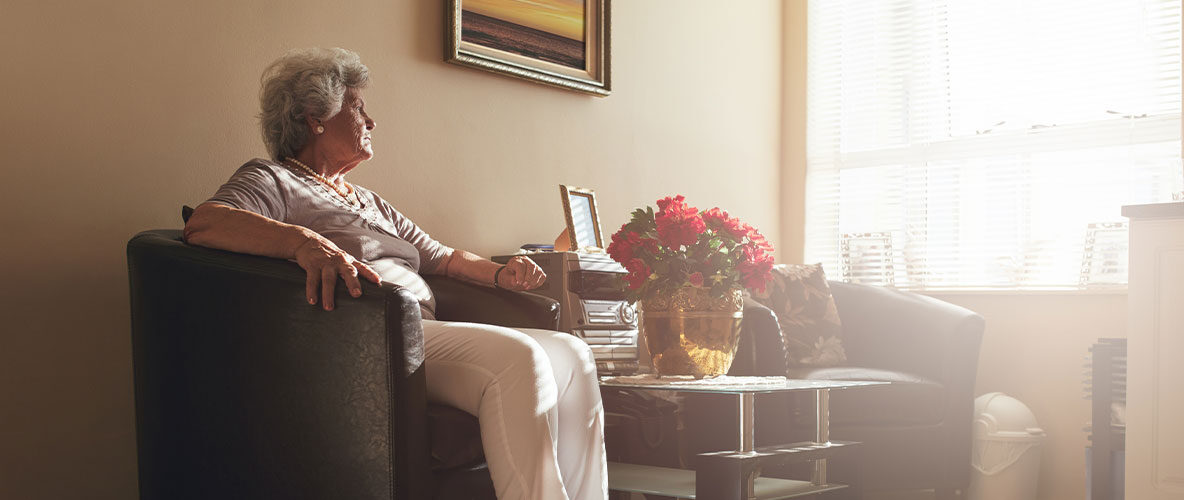When your loved one receives a diagnosis of dementia, you learn that the condition affects more than just memory. For many people living with Alzheimer’s disease or another type of dementia, anxiety, confusion, and agitation are increasingly more common occurrences throughout the day. This can be especially worrisome and frustrating for family caregivers.
If your loved one is experiencing increased agitation and confusion in the late afternoon or early evening hours, they are likely experiencing Sundown Syndrome. Here’s what you need to know in order to best care for and support them during this time of day.
What Is Sundown Syndrome?
The term Sundown Syndrome is sometimes used to describe a set of symptoms that arrive in the late afternoon or early evening hours for those living with dementia. Sundown Syndrome can be challenging for the person living with dementia and their caregivers.
Sundowning can happen at any stage of dementia, though it is typically most prevalent during the middle stage of the disease. There is not currently a cure for dementia or for sundowning symptoms, though physicians can prescribe medications that can take the edge off the anxiety that seems to spur the rest of the sundowning experience.
What Are Sundowning Symptoms?
As with anything, sundowning symptoms can vary from person to person. However, common sundowning symptoms can include:
- Agitation
- Aggression
- Anxiety
- Asking repetitive questions
- Pacing
- Wandering without purpose
No one knows exactly why sundowning symptoms happen during the late afternoon or early evening hours, but we do know that sundowning symptoms can lead to sleep disruption, eating disruptions, and safety concerns.
How To Help with Sundown Syndrome
It can be challenging to care for someone who is experiencing sundowning syndrome. After all, even the most patient caregivers can get frustrated after answering the same question over and over or chasing after a wandering loved one. While there is not a cure for sundowning, there are some ways you can bring comfort to your loved one’s home during this challenging time of day. Here are a few of our favorites:
- Anticipate the symptoms and adjust your schedule of events accordingly. For example, try taking a walk together in the neighborhood an hour or so before their symptoms typically arrive.
- Redirect their energy to an easy-to-follow activity, such as folding towels or pairing socks.
- Set the mood with comforting and quiet music. Turn off the television or other distractions that can cause overstimulation.
- If your loved one doesn’t sit to eat dinner during sundowning, consider preparing food they can take on the go as they pace, such as sandwiches or other finger foods.
- Encourage repetitive movement, such as tapping the table in a specific rhythm to match a musical beat.
- Validate any feelings they are having and resist the urge to tell them they are wrong about something. For example, if they are searching for their mother who passed away decades ago, don’t tell them their mother passed away. It will be traumatic for them. Instead, validate their feelings by saying, “I can tell you’re missing your mom.” Then, redirect by saying, “Tell me your favorite story about her.”
Sundowning can sometimes lead to wandering out of the home. Be sure your loved one is safe by researching a memory care residence long before an emergency situation occurs. These specialized residences are designed to combat the challenges that come with dementia, including sundowning.

